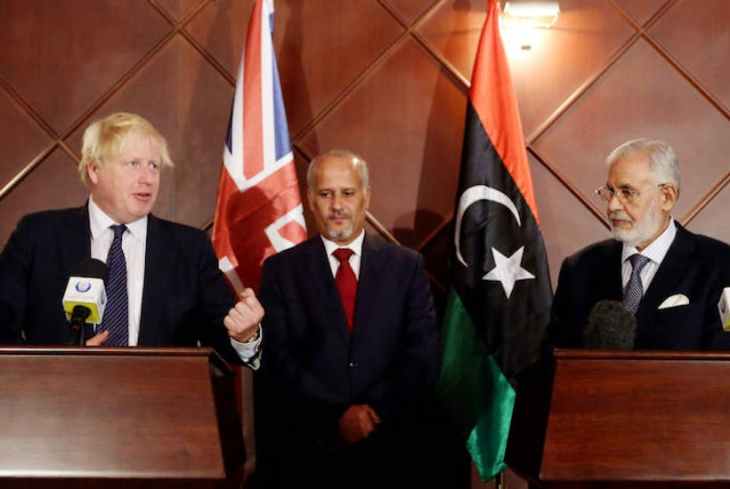In such gorgeous weather the best part of Scotland to visit is not (as so many seem to think) the West Highlands but my native north-east. Moray, a region of whisky and white beaches, has long been the country’s best-kept secret, but it has become rather spoiled of late by its new status as a battleground seat. Plenty of its SNP supporters voted for Brexit, leading to a conflict of loyalties that seems to have been resolved in favour of the Tories. They almost won the council last month and if they take the constituency they’ll depose Angus Robertson, leader of the SNP in Westminster. Nicola Sturgeon is worried enough to come up and offer her support. The venue: a café near Lossiemouth beach, where the First Minister will walk in and talk to pensioners about their concerns. But they’re hardly passersby: the SNP has taken over the whole café and filled it with activists. Ms Sturgeon arrives to regale them, give her benediction to their children and tell them that the wicked Tories want rid of Mr Robertson because he is so effective at Westminster. After making disobliging comments about Jeremy Corbyn for the television cameras, she’s off. It’s a strange kind of campaigning: turning up to be adored by one set of fans, then moving on to be adored by another set. But as Robertson tells me later, at least the SNP have supporters, lots of them, in every town.
At my next stop, in Buckie, I’m surprised to come across Michael Gove. He is from nearby Aberdeen, to be sure, but not exactly local. Then I recognise another activist: it’s Brooks Newmark, who had to stand down as an MP after being caught sending indecent pictures of himself on social media. And here is the Conservatives’ problem: they don’t have the troops, not on the SNP’s scale. Most Scots don’t want another referendum, and voting Tory is seen as the surest way of avoiding one. But if battle is joined, then the SNP’s army of cheerful campaigners could crush what forces the unionists can muster. The best way to win this referendum is to ensure it is never called, which means pushing back the SNP now. So this election is, in its way, yet another battle for Britain.
Barack Obama was among those enjoying Scotland’s sweltering heat last weekend, playing golf at St Andrews before speaking at a charity dinner in Edinburgh. Who knew, he told the audience later, that Scotland was a greener version of Hawaii? But he then started a long speech about the world and its ills, delivered so slowly that it was 10 p.m. by the time the starter arrived. The bar had opened at 5.30 p.m., and the audience was hungry. I saw a member of the House of Lords on the floor at one point. Kevin Bridges, the best comic to come out of Glasgow since Billy Connolly, lowered the tone wonderfully with a slew of unprintable jokes: delivered, as he pointed out, in the kind of dialect Americans tend not to understand. But the best line of the night came right at the end. ‘If you didn’t get the result you wanted, don’t worry,’ said the auctioneer. ‘Nicola Sturgeon is with us tonight and I’m sure she can arrange to have the whole thing held again.’
I left Scotland thinking I’d be reporting on a higher calibre of political debate in Westminster. Big mistake. This general election has offered nothing apart from banality, cliché and mishap, whereas Scotland now has the best arguments, party leaders and drama. But perhaps I’m speaking too soon. If Theresa May loses her majority, as the latest polls suggest, there’ll be no shortage of drama.
To the Middle Temple Hall in London, to hear Hilary Mantel deliver this year’s Reith Lecture on the art of the historical novel. The novelist, she says, creates a ‘version of the past’ and ‘owns up to invention’. I ask her how much she stretches the truth and whether (for example) she tolerates the odd anachronism to make a better story. Never, she replies: the power of her books come from the fidelity to the facts. ‘They say Shakespeare didn’t do much research,’ she tells me, ‘but I am not he.’
In the audience I spot into Tanya Gold, The Spectator’s food critic, who was in London for a restaurant binge. She’s just been to The Ned, an extraordinary attempt to airdrop Manhattan into the City by opening an eight-restaurant, 250-hotel room complex in the nocturnally dead financial district. We discuss whether it will triumph or become a monument to hubris. Perhaps it’s the last big opening before Jeremy Corbyn is elected and everything collapses. Unlikely? I’d say so. Inconceivable? Not any more.







Comments